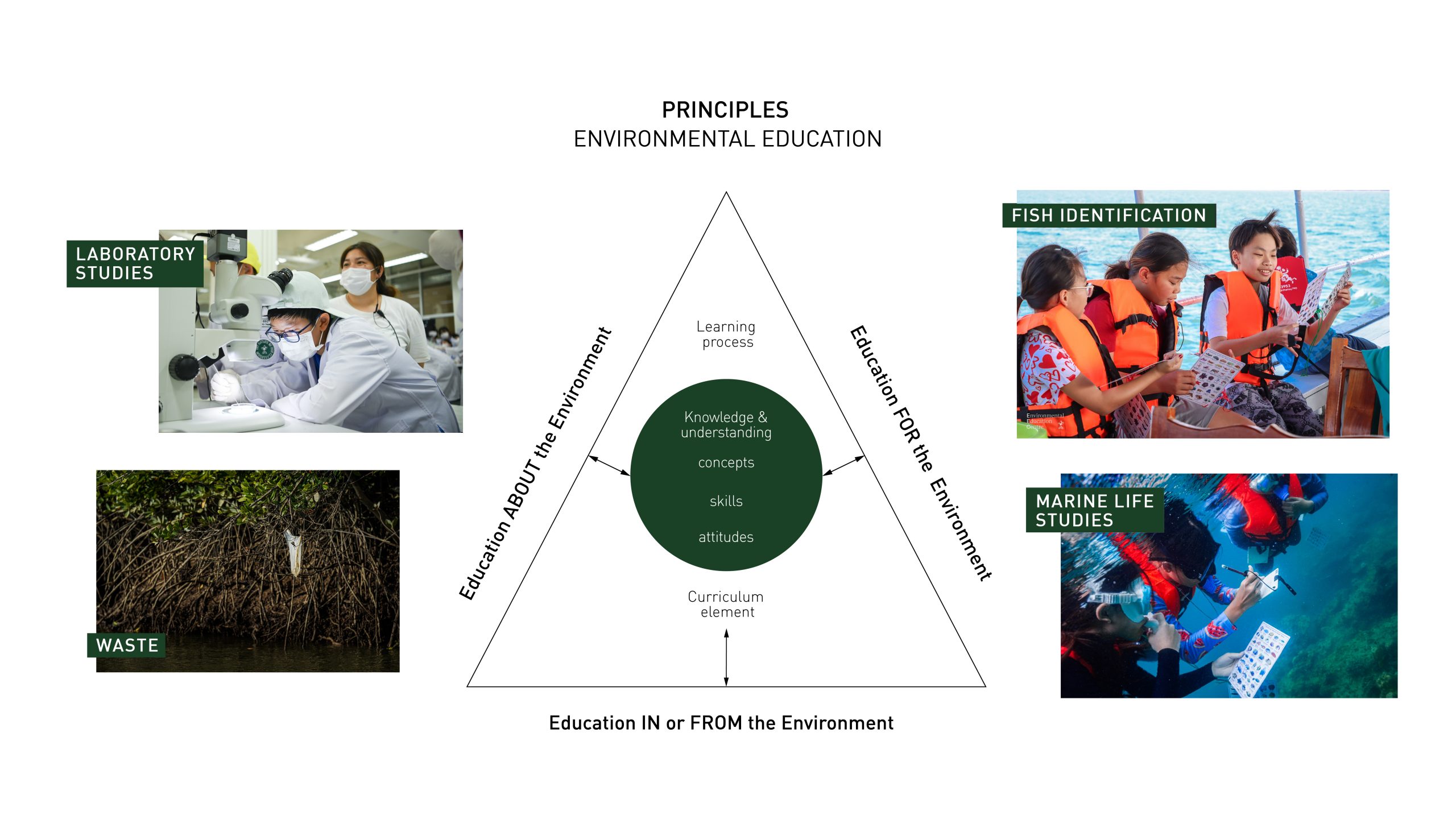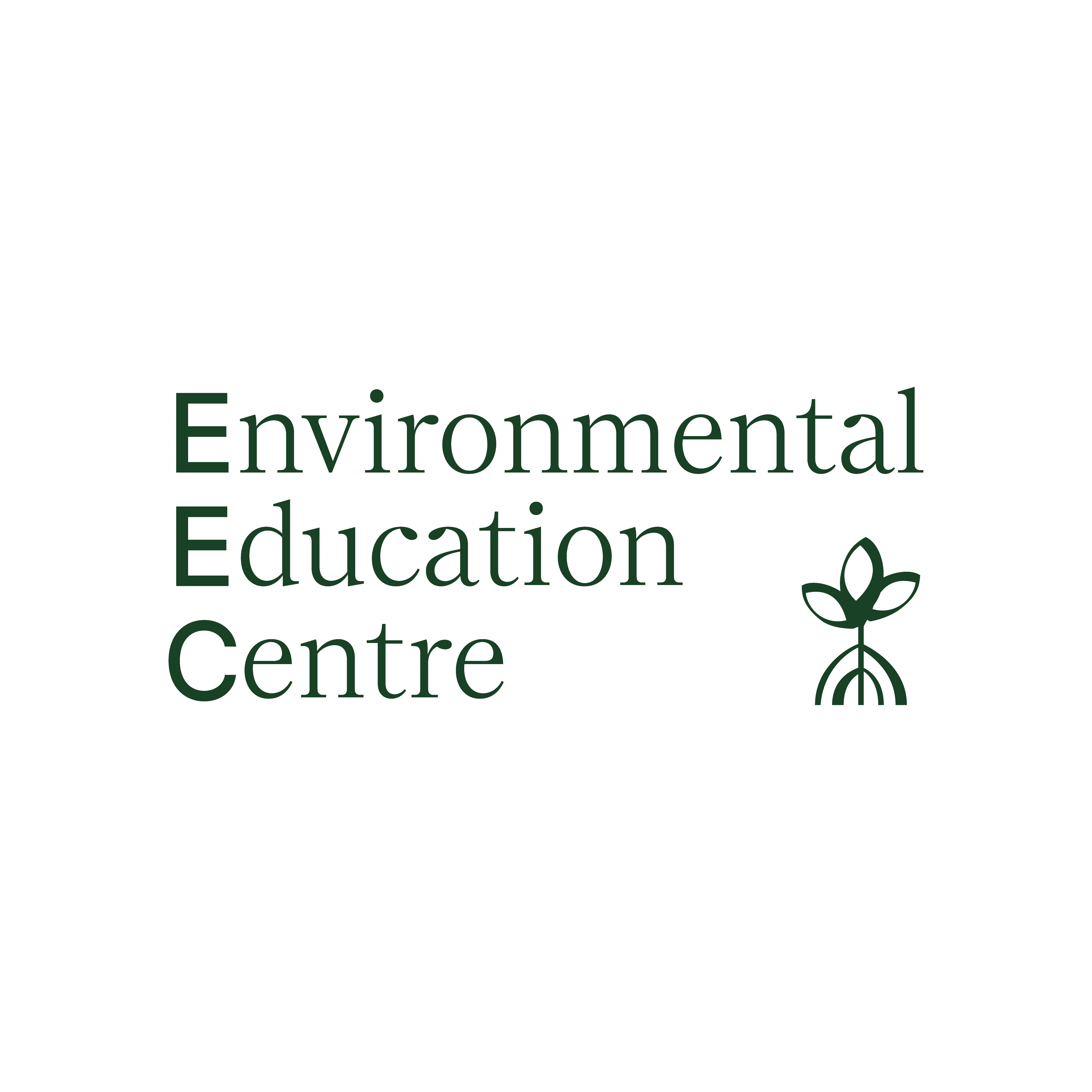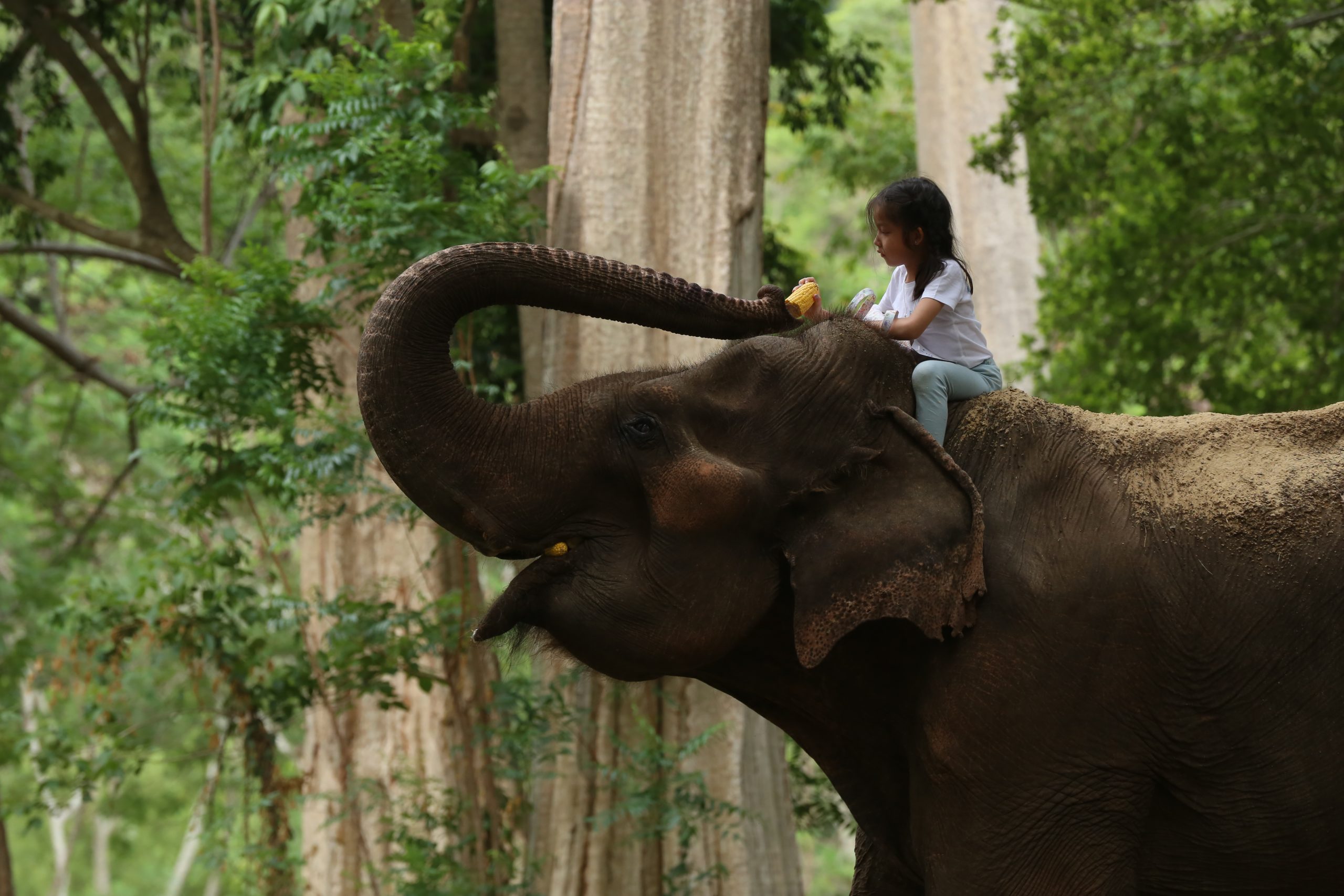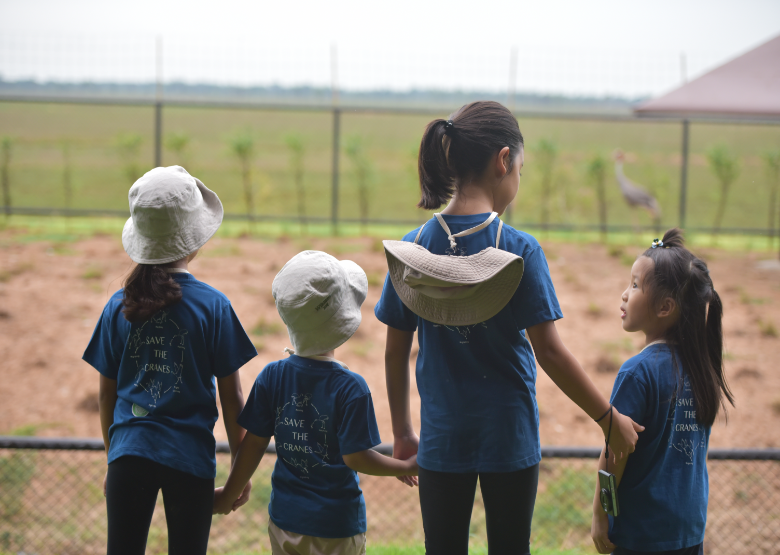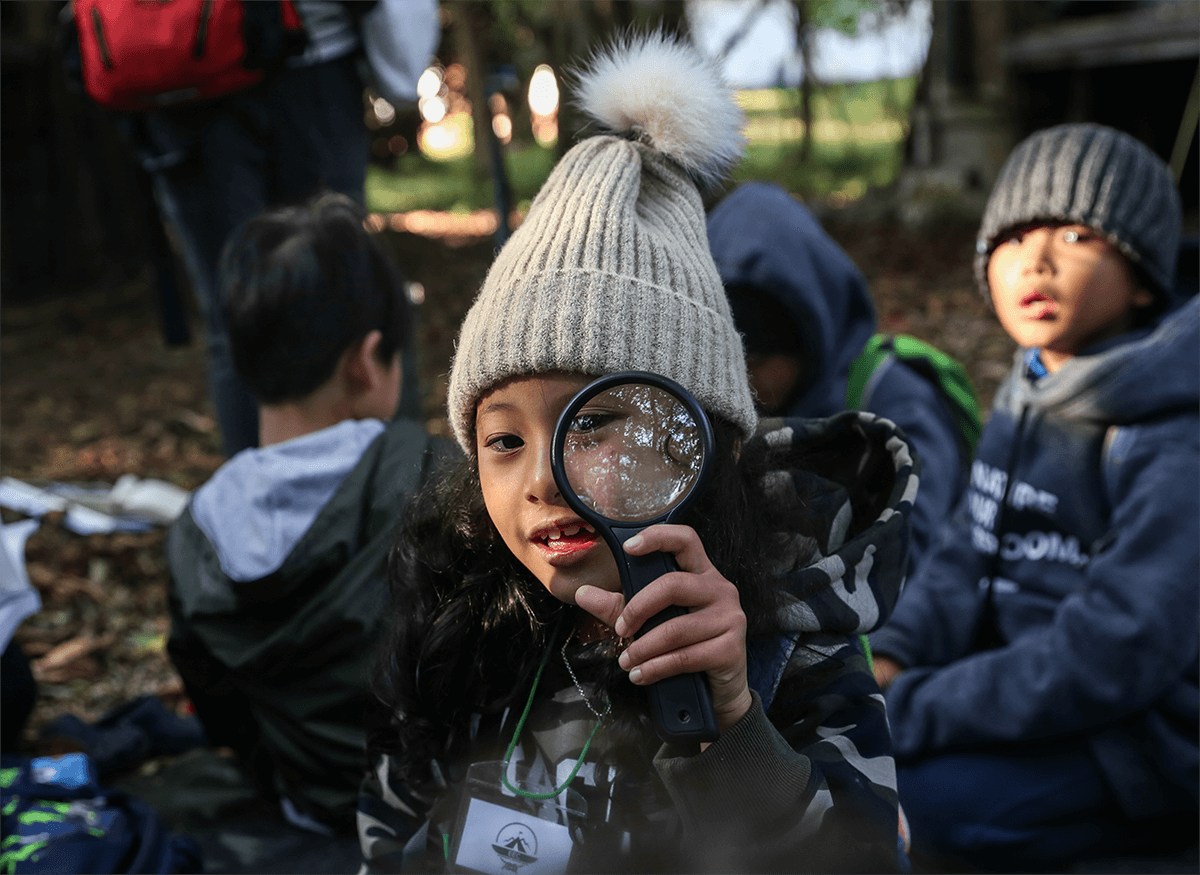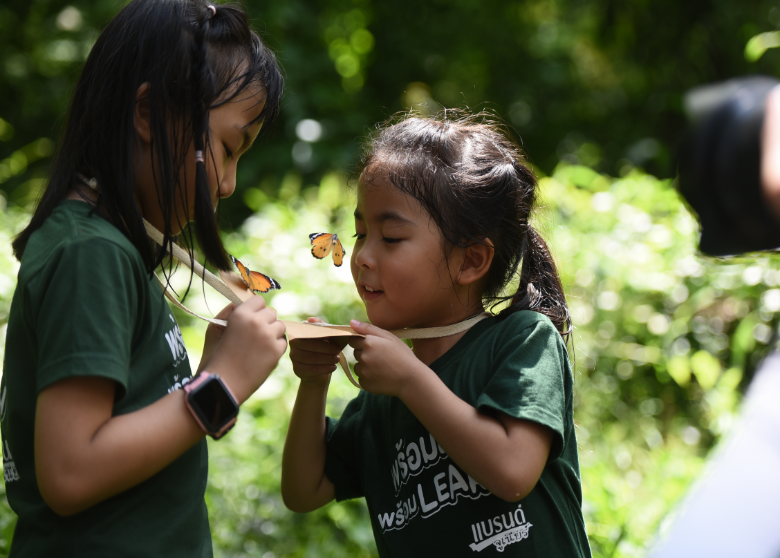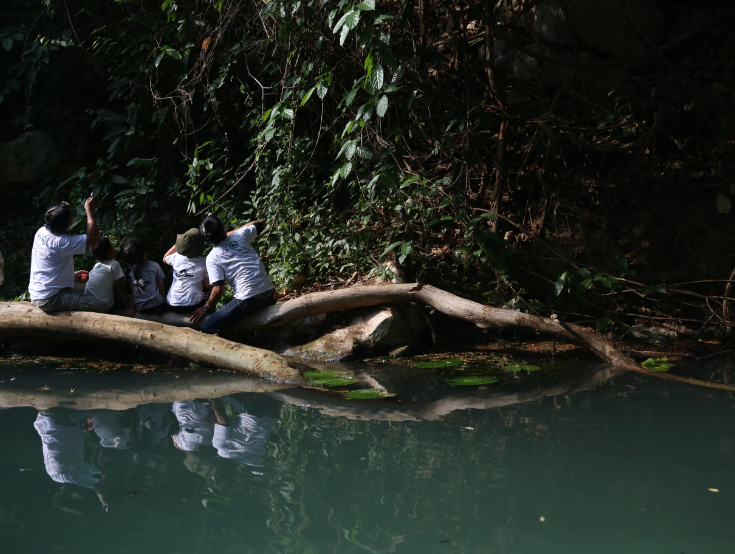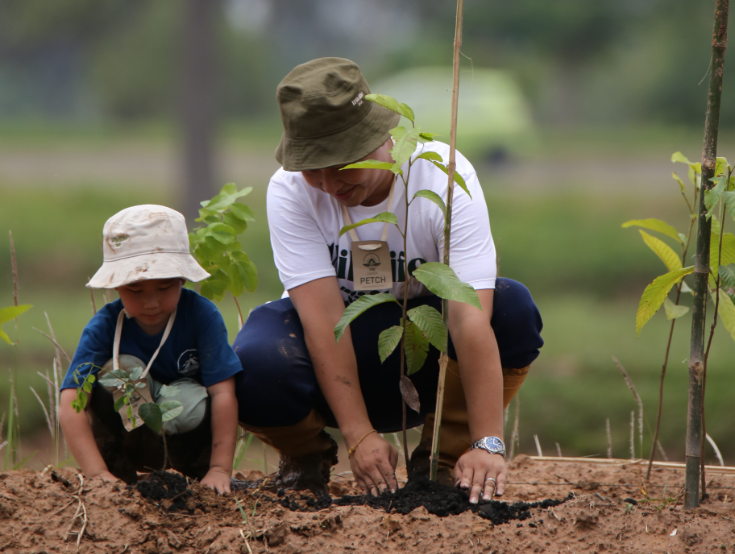
OUR STORY

OUR STORY


With roots in elephant conservation, Environmental Education Centre Thailand (EEC) was founded in 2015 as a social enterprise specializing in environmental conservation and sustainability education.
Using nature as our classroom, structured education camps are at the core of what we do. As an established centre of excellence for environmental education, we have continually developed a variety of services including wildlife camps, marine life camps, private camps, and bespoke CSR collaborations. All of which are achieved with a strong commitment to advancing the United Nations Sustainable Development Goals.
From conservation projects for endangered gorals and bumblebee bats, to dugongs, leatherback sea turtles and whale sharks; we work to protect all wildlife on land and in the sea, at home in Thailand and overseas.
Today, we educate up to a thousand kids a year, raising awareness and creating dedicated advocates for environmental conservation and sustainability every day.
Through our commitment to conservation and sustainability, fueled by our passion for environmental education, we inspire individuals and corporations to engage in environmentally conscious lives and sustainable policies. For the benefit of all living beings.
With roots in elephant conservation, Environmental Education Centre Thailand (EEC) was created as a social
enterprise specializing in environmental conservation and sustainability education.
EEC was established in 2015 by co-founders Alex Rendell and Toey Jarinporn Joonkiat with the goal of raising public awareness and understanding
of the environment, as well as to promote the sustainable use of the earth’s natural resources. They are joined by EEC programme director and vanguard, Doctor Alongkot Chukaew and his team of instructors, who together have over 20 years of experience in environmental education.
From conservation projects for endangered gorals and bumblebee bats, to dugongs, leatherback sea turtles and whale sharks; we work to protect all wildlife on land and in the sea, at home in Thailand and overseas.
Today, we educate up to a thousand kids a year, raising awareness and creating dedicated advocates for environmental conservation and sustainability every day.
Through our commitment to conservation and sustainability, fuelled by our passion for environmental education, we inspire individuals and corporations to engage in environmentally conscious lives and sustainable policies. For the benefit of all living beings.

VISION

VISION


To be a leading social enterprise of environmental
education excellence that, in partnership with
others, assumes an important role in local, regional, and global efforts towards the conservation and long-term sustainability
of the environment.
Our Aim
Our goals and objectives are in line with the UN Global Compact’s
Principles for the Environment. To achieve long-term sustainability, EEC
- Collaborates with businesses to support a precautionary approach to environmental challenges
Undertakes initiatives to promote greater environmental responsibility
Our Promises
- Using nature as our classroom, EEC promises to motivate and inspire environmental consciousness on an individual and collective level
- Create core impressions in younger generations and help shape present mindsets towards a more sustainable future for all
- Educate and inspire volunteerism in youth and adults as well social responsibility in companies, with the conviction that their actions will raise awareness and champion others to follow
- Continue to develop collaborative networks among public-private sectors in order to implement policies into practice
- Strive to be a leading centre for knowledge, initiatives, guidelines, and recommendations for environmental conservation and sustainability; locally, regionally, and globally
- Maintain, improve and expand upon our commitment to the United Nations Sustainable Development Goals
Our Aim
Our goals and objectives are in line with the UN Global Compact’s
Principles for the Environment. To achieve long-term sustainability, EEC
- Collaborates with businesses to support a precautionary approach to environmental challenges
Undertakes initiatives to promote greater environmental responsibility
Our Promises
- Using nature as our classroom, EEC promises to motivate and inspire environmental consciousness on an individual and collective level
- Create core impressions in younger generations and help shape present mindsets towards a more sustainable future for all
- Educate and inspire volunteerism in youth and adults as well social responsibility in companies, with the conviction that their actions will raise awareness and champion others to follow
- Continue to develop collaborative networks among public-private sectors in order to implement policies into practice
- Strive to be a leading centre for knowledge, initiatives, guidelines, and recommendations for environmental conservation and sustainability; locally, regionally, and globally
- Maintain, improve and expand upon our commitment to the United Nations Sustainable Development Goals

OUR OPERATIONAL GUIDELINES

OUR OPERATIONAL GUIDELINES

EEC operates with a belief that education is the key to conservation.
Environmental Education is a process that allows for the exploration of environmental issues. A major aspect of which is engagement and action.
To inspire true social change, our activities are aimed at motivating society to give greater importance to initiatives which contribute to preserving and
restoring our environment.
At EEC, we combine environmental education with hands-on participation and volunteerism to resolve environmental and sustainability challenges.
Our expertise allows us to create unique experiences in environmental education guided by the following principles:
Education ABOUT the environment
Education FOR the environment, &
Education IN OR FROM the environment.
Guided by these pillars, our innovative learning processes and curriculum elements, EEC members and participants are given the opportunity to develop advanced knowledge and understanding, concepts, life skills, and attitudes. Where successful outcomes will result in enhanced environmental literacy and advocacy, leading to higher rates of effective conservation and sustainability in the long run.
